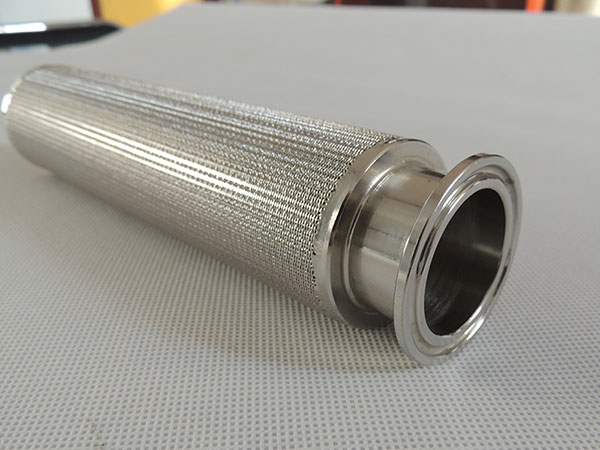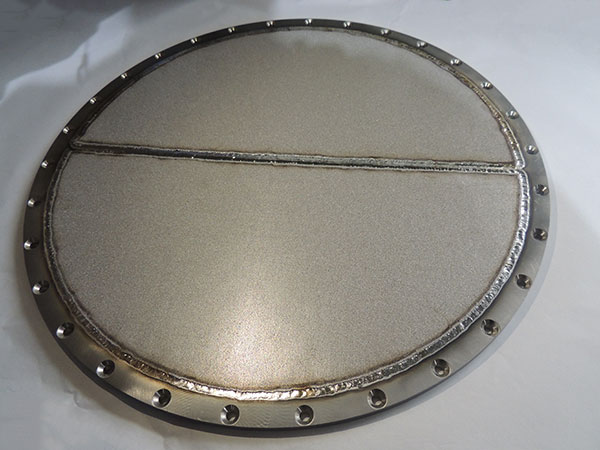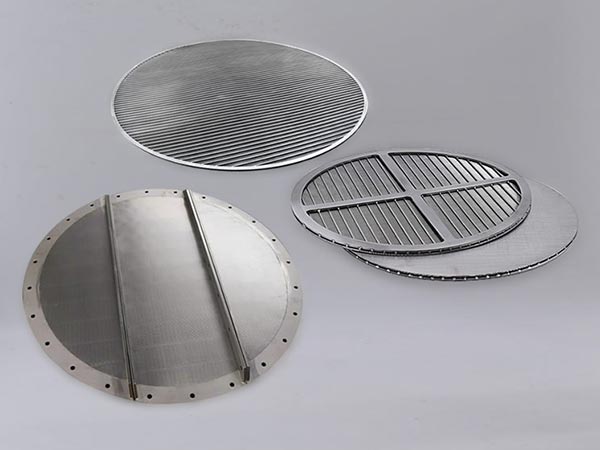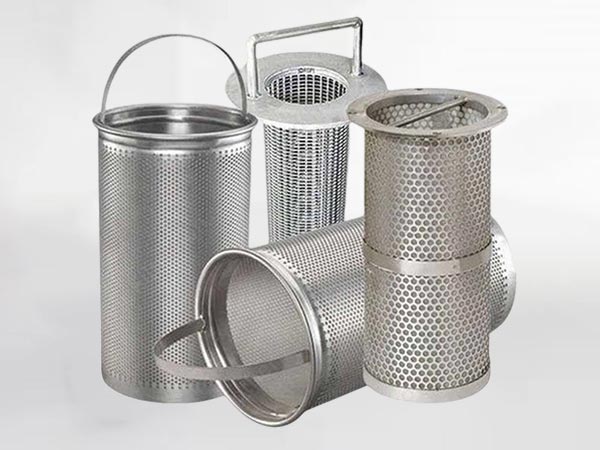Sintered Metal Mesh Filter Basket Strainer
Sintered Metal Mesh Filter Basket Strainer is mainly used for low-pollution coarse filtration, but may be used at high pressure. The flow direction is usually from inside to outside, so dirt/impurities can be filtered in the sintered metal mesh basket and then easily removed during maintenance or automatic backwashing. Basket filters can definitely be cleaned and reused.
In terms of piping systems, filters are very important for protecting equipment such as pumps, instruments, valves and other mechanical parts. Prevent potential damage caused by impurities and other foreign particles carried by process fluids (oil, water, etc.).

sintered metal mesh filter basket strainer with hand grip bar

sintered metal mesh filter basket strainer with grip band
Sintered wire mesh with perforated metal sheets is the most commonly used material for filter basket filters. Because this C-shaped sintered mesh can be self-supporting and easy to form, and it can withstand higher pressure than ordinary spot welded wire mesh.
Since the mesh layers are fused at each contact point, sintered mesh baskets are very suitable for working in mesh basket filters where back pressure conditions may exist. When the fluid flows in the opposite direction from outside to inside, the mesh layers will not separate from the perforated tube.
Slanted opening sintered metal mesh filter basket strainer has a larger inlet because there is an angle between the filter basket flange and the filter body.

Customization of Sintered Metal Mesh Filter Basket Strainer
316 (1.4401), 316L (1.4404), 304, 304L stainless steel are standard materials for sintered metal mesh filter basket filters.
Other exotic materials are also available upon request, such as 310S, 904L, Hastelloy C276, Hastelloy C22, Monel 400, Inconel 625, etc.
Hardware/end fitting materials can be different from sintered metal mesh.
FAQ's
There are many ways to keep you going. Maintenance is crucial for industrial water filters to achieve sufficient filtration and long-term use. To avoid being shut down, you must clean and replace your filter element according to the manufacturer's instructions.
- Plan to regularly inspect the internal screen components.
- Arrange regular inspections of electronic control systems.
- Arrange to regularly add lubricating grease to bolts and sealing components.
- Regularly inspect the filter housing for paint peeling off..
Many industrial water filters need to be replaced within 18 months. Usually depends on the degree of pollution and frequency of use. Therefore, these factors will determine the service life of commercial water filters.




